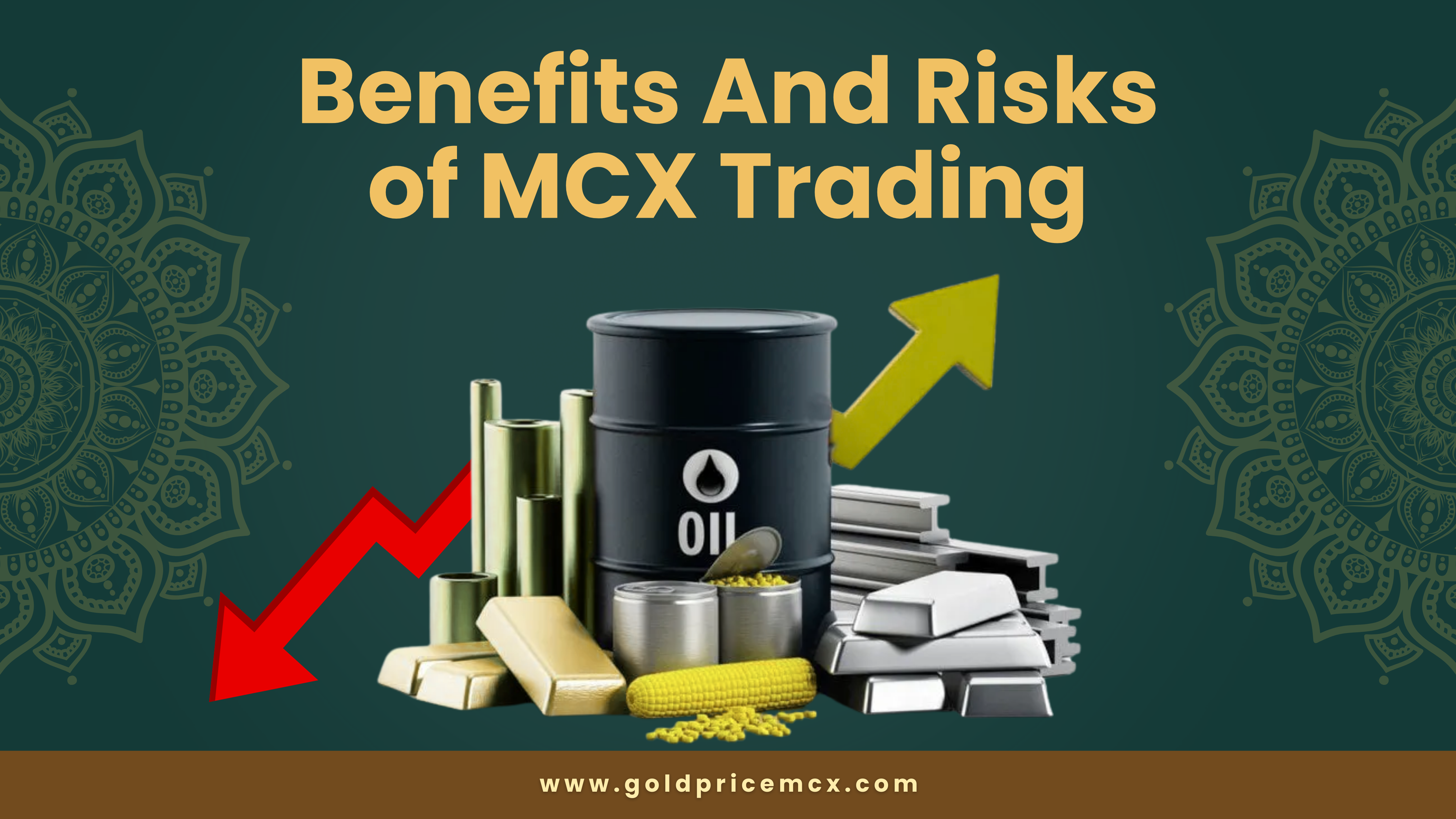The Multi Commodity Exchange of India (MCX) stands as a pivotal platform for commodity trading, offering investors opportunities to diversify their portfolios. However, like any investment avenue, MCX trading comes with its set of benefits and risks. This comprehensive guide delves into the intricacies of MCX trading, popular commodities traded, advantages, potential pitfalls, regulatory frameworks, and more.
What is MCX Trading?
Established in 2003, the Multi Commodity Exchange of India (MCX) is the country’s leading commodity derivatives exchange. It facilitates online trading of commodity derivatives, providing a platform for price discovery and risk management. Operating under the regulatory framework of the Securities and Exchange Board of India (SEBI), MCX ensures transparent and efficient trading mechanisms.
Popular Commodities Traded on MCX
MCX offers a diverse range of commodities categorized into:
- Precious Metals
- Gold: A preferred investment for hedging against inflation and economic uncertainties.
- Silver: Valued for its industrial applications and as a store of value.
- Base Metals
- Copper: Widely used in electrical equipment and construction.
- Aluminum: Essential in transportation and packaging industries.
- Zinc: Used for galvanization and alloy production.
- Energy Commodities
- Crude Oil: A critical energy source influencing global economies.
- Natural Gas: Used for electricity generation and heating.
- Agricultural Commodities
- Mentha Oil: Utilized in pharmaceuticals and cosmetics.
- Cotton: A staple fiber in the textile industry.
- Cardamom: A spice with significant culinary and medicinal value.
Benefits of Trading on MCX
- Diversification
Commodities often exhibit low or negative correlation with traditional asset classes like equities and bonds. Investing in commodities can enhance portfolio diversification, potentially reducing overall risk. - Leverage Opportunities
MCX allows traders to leverage their positions, enabling control over larger contract values with a relatively small margin. While leverage can amplify profits, it also increases the potential for losses. - Transparency and Fair Pricing
MCX operates under SEBI’s regulatory framework, ensuring transparent trading practices. Prices are determined by market demand and supply dynamics, reflecting real-time valuations. - Hedging Against Inflation
Commodities like gold and crude oil often retain or increase their value during inflationary periods, serving as effective hedges against purchasing power erosion. - Extended Trading Hours
MCX offers extended trading hours, allowing participants to respond to global market movements and news events that occur outside regular trading sessions.
Risks Involved in MCX Trading
- Market Volatility
Commodity prices can be highly volatile due to factors like geopolitical tensions, natural disasters, and changes in supply and demand. This volatility can lead to significant gains or losses. - Leverage Risk
While leverage can enhance returns, it also magnifies losses. Traders must exercise caution and employ risk management strategies to mitigate potential downsides. - Liquidity Concerns
Some commodities may have lower trading volumes, leading to liquidity issues. This can result in wider bid-ask spreads and challenges in executing large orders without impacting prices. - Regulatory Risks
Changes in government policies or regulations can affect commodity markets. Staying informed about regulatory developments is crucial for traders. - Counterparty Risks
While exchanges have mechanisms to mitigate counterparty risks, defaults can still occur, potentially impacting traders’ positions.
| Benefits of MCX Trading | Risks of MCX Trading |
|---|---|
| Diversification Commodities often have low correlation with traditional assets, aiding in portfolio diversification. | Market Volatility Commodity prices can be highly volatile due to various factors, leading to potential losses. |
| Leverage Opportunities Allows control over larger positions with smaller capital outlay, potentially amplifying returns. | Leverage Risk While leverage can amplify gains, it can also magnify losses if not managed properly. |
| Transparency and Fair Pricing Regulated by SEBI, ensuring transparent and fair trading practices. | Liquidity Concerns Some commodities may have lower trading volumes, leading to potential liquidity issues. |
| Hedging Against Inflation Commodities like gold can act as a hedge against inflation, preserving purchasing power. | Regulatory Risks Changes in government policies or regulations can impact commodity markets. |
| Extended Trading Hours Allows traders to respond to global market movements beyond regular trading sessions. | Counterparty Risks Despite regulatory safeguards, there’s a risk of counterparty default in trading. |
Regulations and Security of the MCX Market
MCX operates under the stringent oversight of SEBI, which regulates trading operations, clearing and settlement processes, and risk management protocols. SEBI’s regulatory framework aims to protect investors and maintain market integrity.
Additionally, MCX has implemented robust compliance and risk management systems, including comprehensive surveillance mechanisms to monitor trading activities and detect irregularities.
Conclusion
MCX trading offers a dynamic avenue for investors seeking exposure to commodity markets. While the platform provides benefits like diversification, leverage opportunities, and hedging against inflation, it also presents risks such as market volatility and regulatory changes. A thorough understanding of these factors, coupled with diligent risk management and staying informed about market developments, is essential for successful trading on MCX.
FAQ
1. What is the role of SEBI in MCX trading?
SEBI regulates MCX trading, ensuring transparent and fair trading practices, overseeing operations, and implementing risk management protocols to protect investors.
2. Do I need a Demat account to trade on MCX?
Yes, a Demat account is required to trade on MCX, as transactions are conducted in electronic form.
3. Can I trade international commodities on MCX?
MCX primarily facilitates trading in commodities relevant to the Indian market. While some internationally referenced commodities like crude oil and gold are traded, they are denominated in Indian rupees.
4. What are the trading hours for MCX?
MCX trading hours typically extend from 9:00 AM to 11:30 PM IST, allowing traders to participate in global market movements.
5. How can I manage risks in MCX trading?
Effective risk management strategies include setting stop-loss orders, diversifying investments across various commodities, staying updated with market news, and avoiding over-leveraging positions


